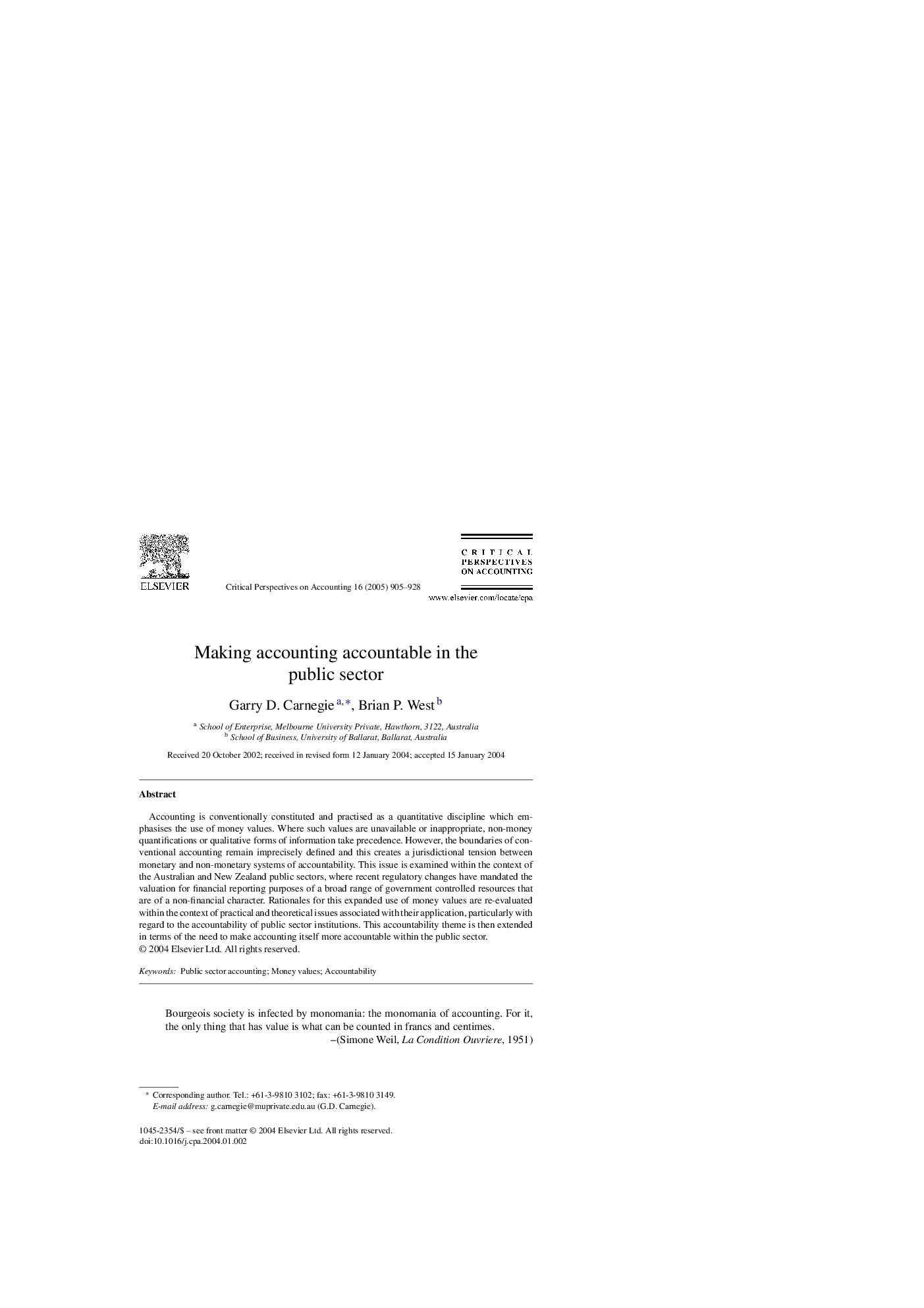| Article ID | Journal | Published Year | Pages | File Type |
|---|---|---|---|---|
| 10488381 | Critical Perspectives on Accounting | 2005 | 24 Pages |
Abstract
Accounting is conventionally constituted and practised as a quantitative discipline which emphasises the use of money values. Where such values are unavailable or inappropriate, non-money quantifications or qualitative forms of information take precedence. However, the boundaries of conventional accounting remain imprecisely defined and this creates a jurisdictional tension between monetary and non-monetary systems of accountability. This issue is examined within the context of the Australian and New Zealand public sectors, where recent regulatory changes have mandated the valuation for financial reporting purposes of a broad range of government controlled resources that are of a non-financial character. Rationales for this expanded use of money values are re-evaluated within the context of practical and theoretical issues associated with their application, particularly with regard to the accountability of public sector institutions. This accountability theme is then extended in terms of the need to make accounting itself more accountable within the public sector.
Related Topics
Social Sciences and Humanities
Business, Management and Accounting
Accounting
Authors
Garry D. Carnegie, Brian P. West,
